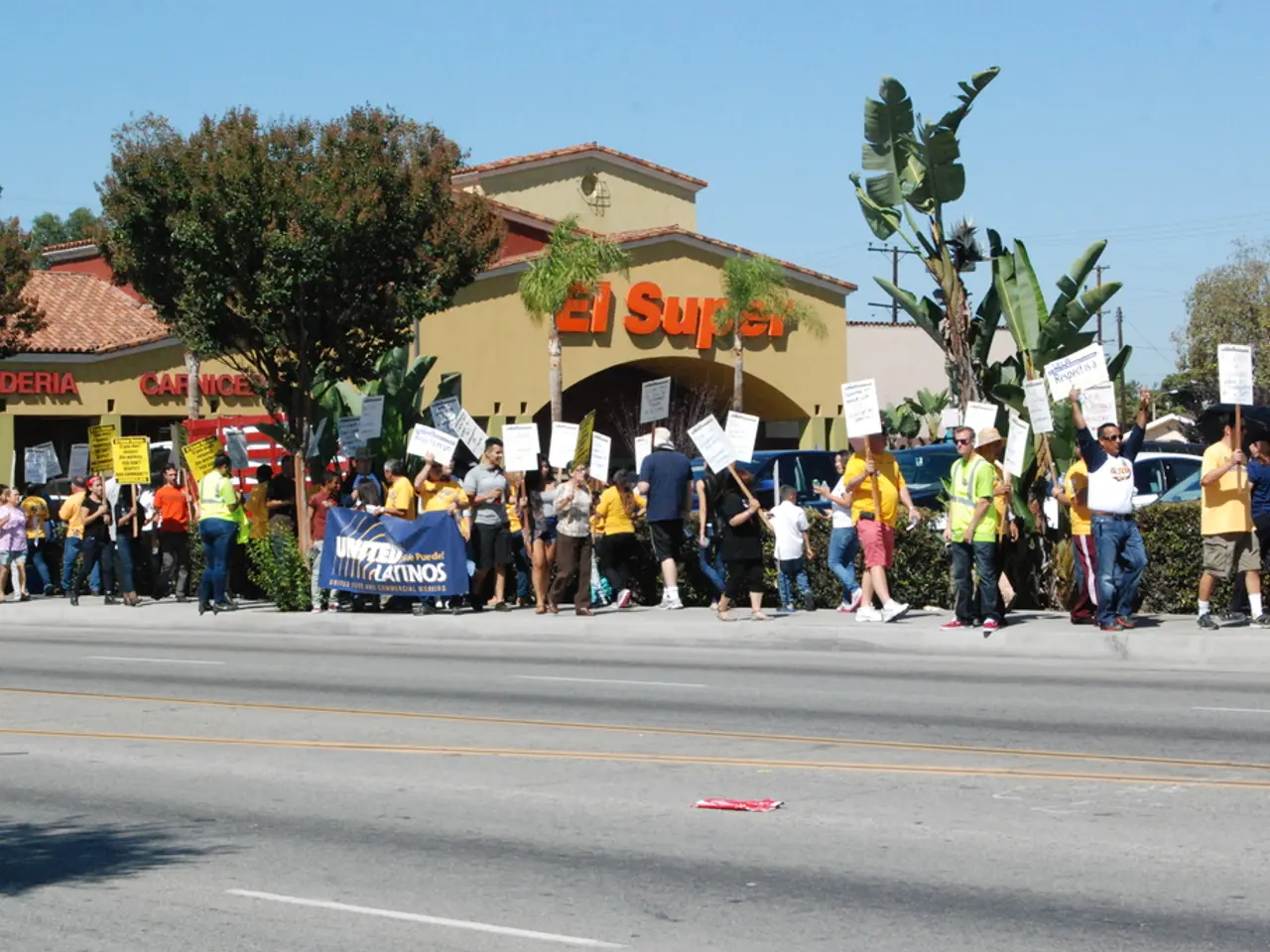Voting locations have been established in the local town hall and churches, as announced by the town's administration.
On September 14, 2025, Bottrop, Germany, will hold local and integration council elections[1]. Here's a rundown of what you need to know about the upcoming vote.
Date: September 14, 2025, local and integration council elections[1].
Process: Voters will elect local council members and integration council representatives.
Candidate count and turnout: Specific details about the number of candidates and voter turnout expectations for Bottrop are not provided, but turnout in similar elections can vary based on local interest and political engagement.
Additional: Integration council elections will occur at the same time[1].
If none of the mayoral candidates receives more than half of the votes on September 14, a runoff election will be held two weeks later, on September 28.
Postal Voting
Over 5,500 postal voting applications have already been received and processed. All Bottrop residents who have a foreign citizenship and have been living in Germany for over a year, and in Bottrop for at least three months, are eligible to vote for the integration committee. This applies to approximately 24,000 people.
Postal voting stations in the town hall and the district administration office in Kirchhellen are open from Monday to Friday from 8 am to 4 pm and on Saturday from 9 am to 12 pm, closing on Friday, September 12, at 3 pm. The postbox in the town hall will be emptied for the last time on Sunday at 4 pm. Ballots that arrive too late will not be counted.
Voting Stations
On election day, 69 polling stations will be open across the city from 8 am to 6 pm, with 800 election helpers on duty. Not all polling stations are barrier-free. A list of accessible locations can be found online, but the alternative location must be in the same electoral district.
Participating Parties
In the three district councils - South, Mitte, and Kirchhellen - there are 15 seats up for grabs, with eight parties vying for voter support. Around 90,000 eligible voters will decide on the composition of the council, the district councils, and the future mayor. A total of 380,000 ballot papers in 33 variants have been printed for the various elections.
Counting the Votes
The counting of votes will be done in a strictly regulated order: Mayor (white ballots), Council (blue ballots), District Committees (green ballots), Ruhr Parliament (lavender ballots), and Integration Committee (yellow ballots).
Tracking the Results
The counting results can be tracked in real-time on the internet.
Preparations
Preparations for the local election on September 14 are in full swing. Pascal Gniffke, head of the election office, advises sending the ballot papers back as soon as possible, preferably by Thursday before the election. Deputy Mayor Emilio Pintea is the election supervisor in Bottrop.
For precise information about the Bottrop election process, candidate list, and turnout predictions, it may be best to consult the official Bottrop city website or the local election authority closer to the election date.
[1] Source: North Rhine-Westphalia State Government, Bottrop City Council
- The upcoming local and integration council elections in Bottrop, Germany on September 14, 2025, are significant events in policy-and-legislation and general-news, as citizens will be electing representatives for both councils.
- The elections will also involve a beyond-local scope, as over 24,000 eligible voters, including those with foreign citizenship living in Germany for a year or more, can participate in the integration committee voting process.





